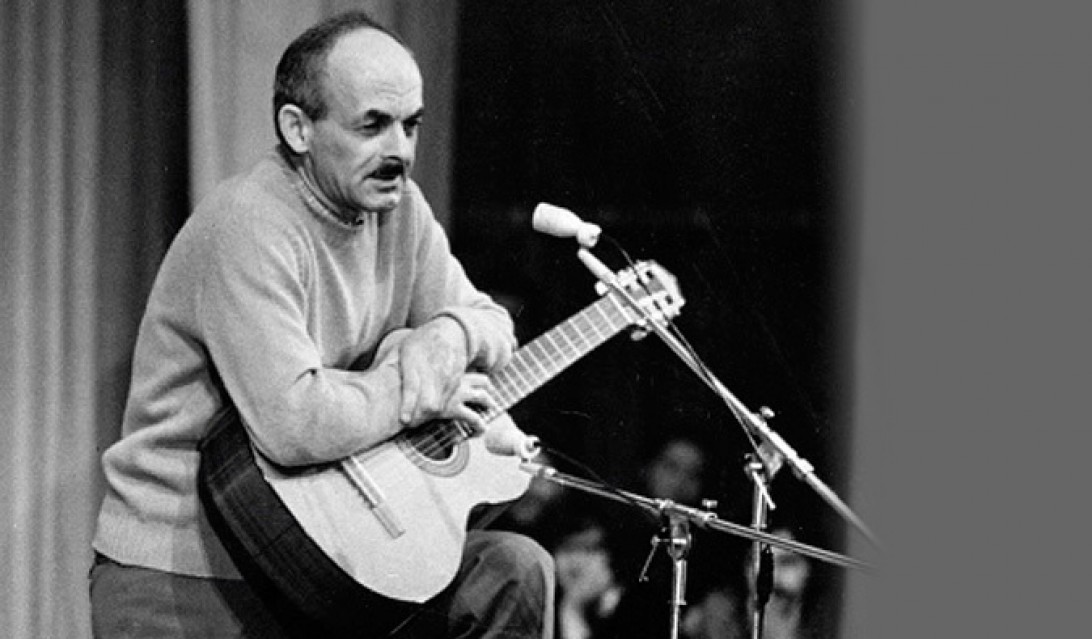Another of Okudzhava’s popular songs, “Paper Soldier” (1959) describes the generations of soldiers who felt as if their service was meaningless despite their desire to bring about real change in the world. Again Okudzhava treats the theme of war and violent conflict in such a way that his audience is invited to question the necessity of warfare. In her book entitled Singing the Self: Guitar Poetry, Community, and Identity in the Post-Stalin Period, Rachel Platonov suggests that Okudzhava’s character of the little paper soldier is likely a recasting of Hans Christian Anderson’s “Brave Tin Soldier,” not least of all since both soldiers perish in flames at the end of both narratives. Platonov also proposes that the year in which the song was written suggests a probable historical context: that of the reexamination of Stalinism and its tragic aftermath.
From a pedagogical standpoint, the creators of this page suggest the incorporation of this particular Okudzhava song for the use in language instruction given its simple language and syntax, and, due to the “catchy” rhythm of the song, could be useful for memorization exercises.
Бумажный солдат
Один солдат на свете жил
Красивый и отважный,
Но он игрушкой детской был,
Ведь был солдат бумажный.
Он переделать мир хотел,
Чтоб был счастливым каждый,
А сам на ниточке висел,
Ведь был солдат бумажный.
Он был бы рад в огонь и в дым
За вас погибнуть дважды,
Но потешались вы над ним,
Ведь был солдат бумажный.
Не доверяли вы ему
Своих секретов важных,
А почему, а потому,
Что был солдат бумажный.
А он судьбу свою кляня,
Не тихой жизни жаждал
И все просил: ‘Огня Огня’,
Забыв, что он бумажный.
В огонь, ну что ж, иди, идешь,
И он шагнул однажды,
И там сгорел он ни за грош,
Ведь был солдат бумажный.
